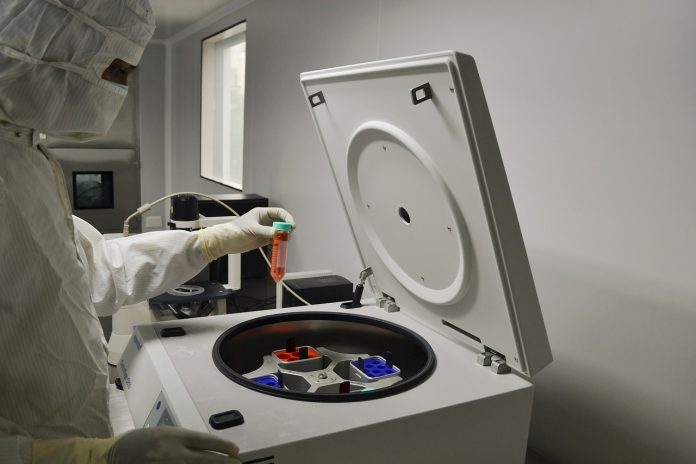The past few years have seen a boom in venture capital funding in the biotechnology sector. VCs invested $35 billion into biotechnology companies between 2019 and 2021. With a global market value of $1.37 trillion as of 2022, the market is expected to reach a compound annual growth rate of 13.96% between now and 2030.
Biotechnology is a cutting-edge area of science that uses living organisms and biological processes to create innovative solutions for a huge range of industries and applications. Biological systems and techniques are used to develop and improve products, processes, and services.
As the name suggests, biotechnology merges biology with technology, enabling scientists and innovators to manipulate living organisms at a molecular level, involving other disciplines including genetic engineering, bioinformatics, molecular biology, and synthetic biology.
The industry has, among other things, revolutionized medicine, leading to the development of vaccines, new drugs, and therapies. Biotech also promotes scientific discoveries and innovation, fostering the growth of new technologies and approaches in numerous fields.
As a result, it’s attracted significant investments worldwide, taking various forms such as equity investments, venture capital funding, private placements, or public offerings. The type of investment depends on the specific stage of development and the nature of the biotechnology endeavor.
Recent Biotech Investments by Armistice Capital, Madison Avenue, and Others
There’s been a spate of biotech investments in 2023 from various venture capital firms including Armistice Capital, Madison Avenue Partners, Invus, and others.
One of the most notable investments of this year was the $212 million financing of Gossamer Bio, a clinical-stage biopharmaceutical company engaged in the development and commercialization of its proprietary drug seralutinib for the treatment of pulmonary arterial hypertension.
Another major biotech investment was the $75 million financing of IO Biotech. This clinical biopharmaceutical company is leading the advancement of novel immune-modulating cancer vaccines based on its T-win technology platform. This investment, again, involved Armistice Capital along with partners including Vivo Capital.
5 Biotech Investment Trends for 2024
Looking ahead, here are five trends popping up in the biotech landscape.
1. Fewer IPOs
A considerable 180 biotechnology companies went public between 2020 and 2021, but only 22 achieved the same in 2022. This slowdown can be attributed to the fact that existing public biotechs are struggling to maintain their value, coupled with regulatory setbacks.
As a result, analysts believe there will be a return to a more measured pace of initial public offerings going into 2024 and beyond. Despite this, dealmaking is expected to accelerate as large pharma companies actively explore partnerships with startups.
2. More Licensing Activity
Mixed market projections concerning licensing ruled in 2023, with investors closely scrutinizing collaborative efforts. That said, several notable biotech licensing deals are already underway.
Moderna, renowned for its coronavirus vaccine, signed a collaboration agreement with CytomX Therapeutics to expand its presence in the oncology sector. Meanwhile, Eli Lilly has announced its plan to acquire Sigilon, a biopharmaceutical company developing encapsulated cell therapies. The announcement led to a 691% surge in Sigilon’s stock in June.
3. More ‘Omics’ Focus
The so-called “omics” field attracted more than $2.4 billion in VC funding in 2022. Catalyzed by the pandemic, the omics field concerns genomics, metabolomics, proteomics, and transcriptomics, delving into cellular analysis to understand the root causes of diseases and develop effective treatments. As a market, it’s nearly tripled since 2019.
Omics is set apart by its potential to revolutionize medicine. Rather than relying solely on traditional parameters such as blood pressure or body temperature, doctors will, in theory, be able to explore each patient’s individual cells, paving the way for truly personalized medicine.
4. AI and ML
Artificial intelligence and machine learning continue to find applications in a wide range of sectors, particularly biotech. VCs are therefore likely to continue to pour investments into AI and ML biotechnology companies.
To date, AI and ML have been widely used by biotechnology companies to improve the automation of various operations and processes. AI, for example, can be used to find biomarkers for use in the development of drugs and diagnostics. AI algorithms can also be used to identify human disease characteristics for illnesses such as cancer.
5. Big Data
There’s never been more data available for biotech analysis than there is now. With the integration of technologies such as sensors and smart technology, scientists are now in a position where they have unprecedented access to data.
This naturally leads to data privacy, storage, and security challenges, and specialist startups are rising in a bid to improve the management and preservation of sensitive patient data. Firms are also using big data to develop better and safer treatments for patients and developing ways to improve patient results and outcomes for existing treatments.



 Bitcoin
Bitcoin  Ethereum
Ethereum  Tether
Tether  XRP
XRP  Solana
Solana  USDC
USDC  TRON
TRON  Lido Staked Ether
Lido Staked Ether  Cardano
Cardano  Avalanche
Avalanche  Toncoin
Toncoin